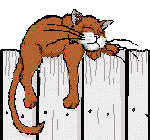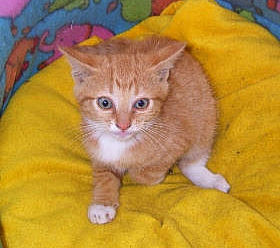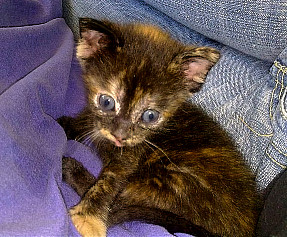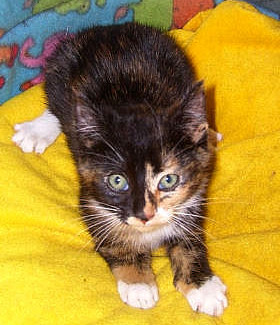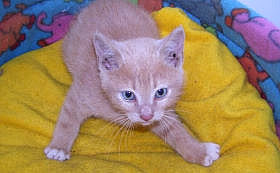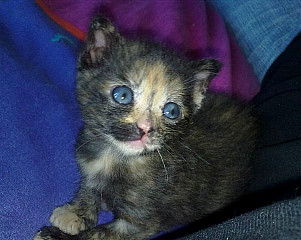 |
|
 |
 |
 |
 |
 |
 |
The Origins of the Grahamstown Feral Cat Project
Lorna had for health reasons been unable to do large-scale trapping for a few years and felt extremely frustrated to learn that "nuisance" ferals were being reported to the SPCA who had little choice in most instances but to trap the innocent offenders and take them off to be humanely put down. (Ferals cannot easily be homed, except by those few dedicated ailurophiles who can often gentle them and turn them into wonderful companions.) Natalia too had been searching for a way to help the feral cats she had become aware of, and so Lorna and Natalia got together and decided to do something about it. Neither felt that destroying these cats is acceptable - they have been born and survived against the odds, they have found niches for themselves in our town, they breed and they are now a part of our environment. The problem with leaving them to Nature to control is that people don't like the sight of kittens lying dead in the road, of starving, sick adults giving birth to still more kittens, of males fighting for territory or causing a disturbance during the breeding season. Another problem is that if left to breed unchecked the numbers could soar and have a negative impact on local birds and small wildlife. These cats, struggling to eke out an existence in ever-increasing numbers could become unhealthy and spread disease, not only amongst themselves but also to free-roaming domestic cats. All in all, not a very happy picture.
This initiative needs the support of city businesses and members of the public who would like to assist in any way. We want residents (especially the kind donors to this project - thank you for your vote of confidence so far) but also visitors to view our city cats with pride, because we hope to keep them in good condition with regular feeding and care, as far as possible. We also encourage concerned members of the public to assist these feral cats - once their sterilization has been taken care of - with feeding, so as to limit the impact they have on small wildlife. It is hoped the project will be ongoing for as long as there are feral cats in need of a helping hand and the funds to allow us to get it done. It can't all happen overnight - cats can be wily creatures around traps, and time and patience are needed. Whenever possible, we try to home cats and kittens of suitable temperament. However, without premises for keeping large numbers of homeless/wild cats and kittens, nor much chance of finding good homes for them, we choose to focus more on the sterilization and care of feral populations.
A few individuals have been doing this work here on a small scale over the years, but we hope to get all interested parties working more closely together in future to better manage feral cat populations in a humane and sustainable way. Over and above sterilizing the cats - which is funded by donations from the public and independently of any other organisation - the cats are also vaccinated against rabies. This is sponsored by the State Veterinarian, and a small 'V' is cut out of the tip of sterilized cats' ears to identify them.
We appeal to you to show these cats compassion should you meet one of them on your rounds of our little city. Please bear in mind that we do not generally provide an alternative to the work of the SPCA, whose area of interest in animal welfare in Grahamstown is extremely broad. Acknowledgements and DonationsWe acknowledge with thanks the assistance of Dr Gilfillan and staff in this project.
PLEASE remember under reference to put W/CAT (and include your name) so the practice knows these funds are there only for helping animals no-one else has taken responsibility for. We would like you to tell us if you have made a donation, not only so that we can thank you properly, but also so that we can keep track of funds coming in. Donations of food would also be most welcome as some of the cats are stunted due to a poor diet. With no overhead costs of our own, all funds go directly to the care of the cats. We are aware that the animal welfare "pie" is not a very large one, and we do not wish to divert any funds that currently support the work of the SPCA. Thanks for reading, and for caring. Lorna
|
Page updated on December 11, 2017 |
TOP |
